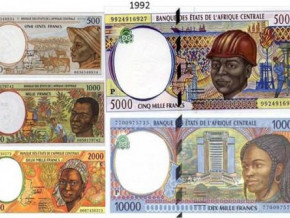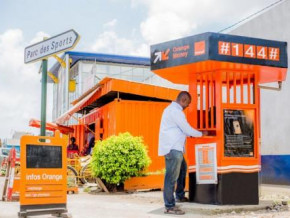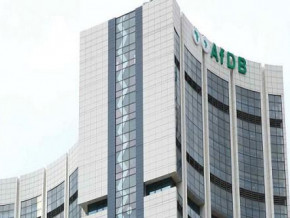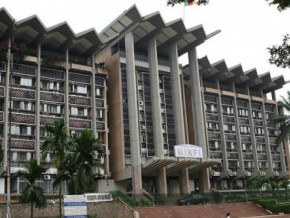
Cameroon wants to reduce cocoa export charge by 50%, in order not to discourage operators in sector
Increased by close to 300% (from FCfa 54 to FCfa 150) at the beginning of the 2014-2015 cocoa season, in order to finance the recovery plan of the cocoa and coffee sectors, whose objective is to attain cocoa production of 600,000 tons in Cameroon by 2020, the export charge for cocoa should be halved from the start of the 2017-2018 cocoa season, we learned during a recent field tour by the Minister of Commerce, Luc Magloire Mbarga Atangana.
This measure, we learned, aims at offering a larger margin to exporters, who in turn should pay fair prices to producers, so that the latter do not give in to discouragement, faced with the decrease in world cocoa prices observed for several months now in the international market.
With this decision to reduce the cocoa export charge from FCfa 150 to 75 per kilogram, the Cameroonian government and local operators in the cocoa sector will above all forego a substantial part of the FCfa 600 million required for the implementation of the recovery plan for the cocoa and coffee sectors, which has not produced the desired results since its launch during the 2014-2015 season.
Because, in spite of actions to promote cocoa growing for years, by the Cocoa-Coffee Board as well as governmental bodies such as the National Office for Cocoa and Coffee (l’Office National du Cacao et du Café - ONCC), or even the development fund for cocoa and coffee sectors (Fonds de Développement des Filières Cacao-Café - FODECC); national production has stagnated around 200,000 tons for at least five seasons.
In order to reverse this tendency, and thus put an end to what appears to be a scattering of forces within the cocoa and coffee sectors, the Cameroonian government, we learn from reliable sources, is planning to merge all these organisations into one superstructure. A project which, we are told within the two sectors, could mark the end of the liberalisation underway since 1999, with the liquidation of the National Development Office of basic commodities (Office National de Développement des Produits de Base - ONCPB).
Brice R. Mbodiam
Cameroon: 1800 dryers and cocoa bean storage warehouses transferred to cocoa producers
"We must, in the first instance, win the challenge of generating a product of quality, which is a key element of effective marketing. It means only selling well fermented and correctly dried cocoa, top of the range cocoa, which will always find buyers, at fair price levels". This is how the Cameroonian Minister of Commerce, Luc Magloire Mbarga Atangana, summarised the objective of the tour that he had just completed in the cocoa production areas of the Centre, South, South-West and Littoral regions.
Indeed, during this field visit, this government member transferred 1800 cocoa bean dryers as well as storage warehouses to the cocoa producer groups, to help them improve the quality of their produce.
This government support, Minister Mbarga Atangana hoped, should help to cancel the discount of FCfa 200 per kilogram that Cameroonian cocoa is subjected to on the world market, due to its moisture content and smokey flavour.
BRM
Exports of wild animals from Cameroon to Nigeria worry Abuja authorities
On 26 July 2017, in Calabar, Cross River State, Nigerian customs officers intercepted three cargo of animals imported from Cameroon, bound for Nigeria, the Nigerian press revealed. The three cargo, we learned, were loaded aboard a vessel christened MV Flesh, and made of 140 snakes of different species and 660 other various animals.
To be clearly situated with regards to the people responsible for these imports, informs the same source, the Nigerian Minister of Agriculture and Rural Development, Audu Ogbeh, immediately announced having requested for an investigation to be carried out by the Nigerian Agricultural Quarantine Service (NAQS). According to Mr Audu, the Nigerian authorities are concerned that this type of import could be used as a mean to launch a “biological warfare” against the Nigerian agriculture.
“Our ambition is to become a major agricultural nation. If the quality of our imports and that of the materials entering our territory is unknown, anything could happen. Possible dangers include biological warfare, which could be launched against our agricultural industry. This is the reason for which the quarantine service must be authorised to play its part, without necessarily disrupting the routine operations at the ports”, declared Mr Ogbeh.
As a reminder, Cameroon and Nigeria share a 1,500 km long land border, along which intense illegal activities are taking place, activities particularly dynamic in the three northern regions and the two Anglophobe regions of the country.
BRM
Cameroon’s cocoa production taken over by Nigeria
An important share in the cocoa crop in the South-Western region of Cameroon, one of the most important production areas in the country, is not subjected to any checks with regards to national systems, because it is illegally exported to Nigeria. The information, for which no further details were provided by operators in the sector, was revealed on 26 July 2017 in Yaoundé, the Cameroonian capital, during a preparatory meeting for the launch of the 2017-2018 cocoa year.
According to operators in the cocoa sector, the town of Mamfé is the hub for this expatriation of the Cameroonian cocoa production to Nigeria, a practice against which local exporters are a strong and urgent intervention from the government.
“For 30 years now, we have noticed a lack of commitment from the government to solve this problem. Nigerians come up to Kumba, Mamfe. They use Cameroonians. The State cannot tell us they do not have the means to fight against this phenomenon “, denounced Kate Fotso, MD at Telcar Cocoa, local trading arm of Cargill, who represents close to 35% in Cameroonian cocoa beans exports.
According to operators, simply installing checkpoints in towns located in the South-Western region where this practice takes place, should help prevent the actions of fraudsters.
Brice R. Mbodiam
Cameroon: South Africa promises to support construction of cassava processing unit in Ogandi
Cassava producers in the town of Ogandi, in the Central Cameroon, will benefit from the financial support of the South African High Commission, in the framework of their project for the construction of a cassava processing unit.
This promise was made by the South African High Commissioner in Cameroon, Zanele Makina. This was on 18 July 2017, during the celebration of the Nelson Mandela Day.
Simply put, the South African diplomat will make available to the producers 10% representing the required share (FCfa 48 million), for the project sponsored by these producers to benefit from funding from the Projet d'investissement et de développement des marchés agricoles (Pidma – investment and development project for agricultural markets), which received FCfa 50 billion in funding from the World Bank.
BRM
AFD injects FCfa 90 billion in the development of the agro-pastoral sector in Cameroon
In the framework of the 3rd Debt Relief and Development Contract (C2D), the French Development Agency (AFD) and the Cameroonian Ministry of Economy, recently signed agreements for the allocation of a global envelope of FCfa 90 billion, for the development of the agro-pastoral sector.
Concrètement, ces fonds, apprend-on officiellement, sont destinés au Programme de consolidation et de pérennisation du dispositif de formation et d’insertion agropastoral et halieutique (PCP-Afop), et au Programme d’amélioration de la compétitivité des exploitations familiales agropastorales (Acefa), tous mis en place par le gouvernement.
Pour rappel, le programme Afop vise à renforcer les compétences des acteurs agropastoraux, grâce à la création, à travers le pays, d’écoles et autres centres de formation spécialisés dans les métiers agropastoraux.
As a reminder, the Afop program is meant to strengthen the skills of agro-pastoral operators, via the creation, throughout the country of schools and other training centres specialised in agro-pastoral professions.
The Acefa program for its part consists in providing producers and livestock farmers with financial support and technical expertise, to enable them to develop their activities and therefore increase their income.
BRM
Cameroon seeking partners at World Coffee Producers Forum, in Colombia
The Minister of Trade, Luc Magloire Mbarga Atangana, is attending, since 10 July and until 12 July 2017, the first World Coffee Producers Forum, we officially learned.
During this event, taking place in the city of Medellin, in Colombia, this Cameroonian government member exchanged with operators in the coffee sector from over the world, to develop partnerships and further boost the coffee sector in Cameroon, indicates the Ministry of Trade.
This Columbian expedition comes in a context marked by the continued lack of interest from local farmers for this commodity, whose farm gate prices are taking a long time to follow the rising trend observed at least 5 years in cocoa.
All this undermines the local production, which had officially peaked at 16,142 tons in 2012-2013, resulting in the country having the worst coffee season “of the past 50 years”, as specified by the cocoa-coffee professional association.
Despite a production of 24,500 tons in 2015-2016, against 23,865 tons during the previous season, Cameroon is still far away from the forecasts contained in its cocoa-coffee sector recovery plan, which target a production of 150,000 tons by 2020.
BRM
Cameroonian parliamentarians request support of IITA to relaunch agriculture in the North
The threat and attacks of Boko Haram in the northern part of Cameroon have pushed several farmers to abandon their activities to flee towards safer zones. With the marked improvement in the security environment, several farmers wish to restart working in the fields, but are facing a scarcity of seeds.
To solve this problem, a group of Cameroonian parliamentarians have just met the management of the International Institute of Tropical Agriculture (IITA), in order to secure the action of this institution in the reconstitution of stocks of cereal seeds in the regions of the North and Far North in the country.
Indeed, we learn, these parliamentarians hope that IITA reproduces in the northern part of Cameroon, a programme implemented with success in Nigeria, where Boko Haram also creates turmoil; and which has allowed farmers to start going about their business again, thanks to the provision of improved seeds. Responding to this request of the Cameroonian parliamentarians, the local management of IITA has not only promised support in rice, vegetable, sorghum, cowpea and corn seeds, but also examined other strategies aimed at helping agriculture in the northern part of Cameroon.
BRM
FCfa 128 million of financing for small farmers in the region of South Cameroon
Within the framework of the Programme for the Improvement of Competitiveness of Family Agro-Pastoral Farms (Programme de la Compétitivité des Exploitations Familiales Agropastorales - ACEFA), 17 farm organisations in the South region of Cameroon have just benefited from financing totalling FCfa 128 million, we learned officially. According to the operating rules of this government programme, financial support lies between FCfa 500,000 and 6 million for beneficiary producer groupings, and between FCfa 5 million and FCfa 30 million for professional organisations.
Financed by the fund C2D, the ACEFA programme, co-piloted by the Ministry of Agriculture and that of Animal Husbandry, aims to "increase the revenues of family farmers by improving the competitiveness of their farms". The 2nd phase of this programme, currently being implemented in the country, plans to finance 5,200 projects in total, for an overall envelope of FCfa 23 million.
BRM
Rise in local buying price for Cameroonian cocoa still expected
Since the farm gate price per kilogram of cocoa dropped below FCfa 1,000 in Cameroon, during the first quarter of 2017, producers have been increasingly anxious, as they have been used to more profitable prices, which often reached up to FCfa 1,500 per kilogram.
Based on the statistics compiled by the Sector Information System (système d’information des filières – SIF), which published average prices offered in production areas throughout the country on a daily basis, one kilogram of cocoa has been sold for FCfa 900 to 960 for the past three months.
A situation which experts put down to the downward trend in prices noted on the international market for several months now.
From the authorities side, this decline in cocoa prices is a source of concern, especially as it could discourage producers and undermine the production ambitions set for 2020, with projections at 600,000 tons against approximately 250,000 tons currently.
BRM
Mags frontpage
- Most read 7 days
- shared 1 month
- read 1 month






































